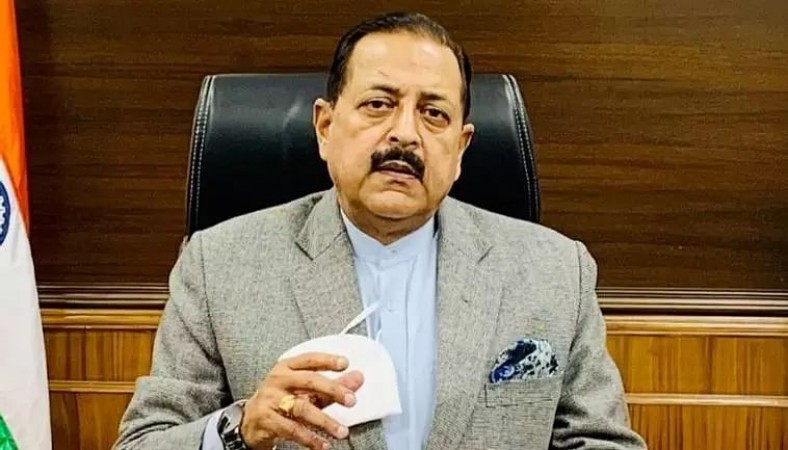
NEW DELHI: Dr. Jitendra Singh, the Union Minister of State (Independent Charge) for the Ministries of Science and Technology, PMO, Personnel, Public Grievances, Pensions, Atomic Energy, and Space, stated today that India has traversed across unbounded "Space" in the past nine years under Prime Minister Narendra Modi.
Dr. Jitendra Singh said in his speech at the India Defence Conclave 2023 that Prime Minister Modi has implemented various policy initiatives over the past nine years to support domestic design, development, and production of defence equipment, hence promoting Atmanirbharta in the defence sector. With this, he siad, the space sector has advanced at a quantum leap that is greater than the advancements accomplished in the nearly six decades prior.
It is important to note that India's defence industry can now produce a wide range of high-end necessities, including tanks, armoured vehicles, fighter aircraft, helicopters, warships, submarines, missiles, electronic equipment, special alloys, special purpose steels, and various types of ammunition.
The Defence and Space industries are interwoven and both of them received an enabling environment from the Prime Minister for their quicker and indigenous growth by bridging the policy gaps, he said.. The Minister made reference to the strategic importance of space in light of recent international conflicts, noting that space is a dual-use technological sector that is emerging as a vital multi-faceted enabler with unmatched reach. He continued by saying that many countries are currently concentrating on improving their military space capabilities in order to ensure that it is used in a safe, secure, and friendly manner as well as to have the potential to deter enemies when necessary.
Dr. Jitendra Singh further noted that the National Quantum Mission (NQM), which aims to seed, nurture, and scale up scientific and industry R&D and develop a vibrant & inventive ecosystem in Quantum Technology (QT), was authorised by the Union Cabinet at a total cost of Rs. 6003.65 crore from 2023–24 to 2030–31. This will hasten QT-led economic growth, strengthen the national ecosystem, and position India as a leader in the creation of Quantum Technologies & Applications (QTA).
The Minister emphasised that because the US, Canada, France, Finland, China, and Austria are currently conducting research and development in quantum technologies, all of the countries are on par in terms of the mission's initiation now that India has joined an exclusive group of a select few countries in this field.
Dr. Jitendra Singh mentioned how Prime Minister Modi opened up the space industry to private investment, which resulted in the creation of more than 105 start-ups within only three years. He said that starting with the 2017 SAARC Satellite Mission, five PSLVs were constructed domestically by L&T and HAL, and 104 satellites were launched simultaneously.
Dr Jitendra Singh said, India’s other flagship sector programmes also include Human Space Flight Centre or what we call in India as "Gaganyaan project" under which we are planning to send our first crewed flight in space in 2024 after the 2 trial flights.
Dr. Jitendra Singh said, our nation's youthful, private industrial company will soon assume the lead in the disruption of space technology on a worldwide scale. In order to take advantage of the endless potential provided by the space domain, he expressed hope that India's young technological wizards will break through new obstacles in the realm of space technology.